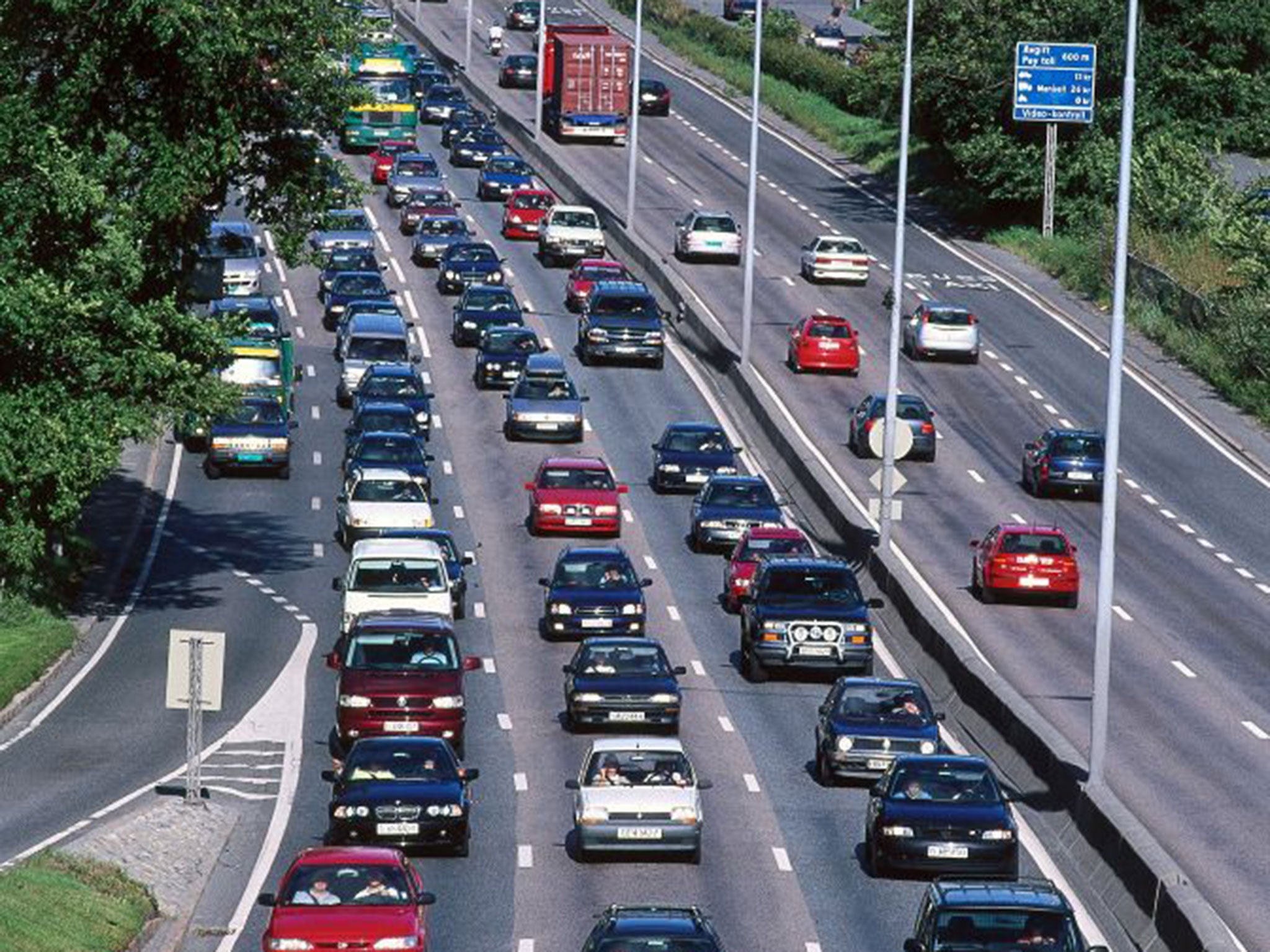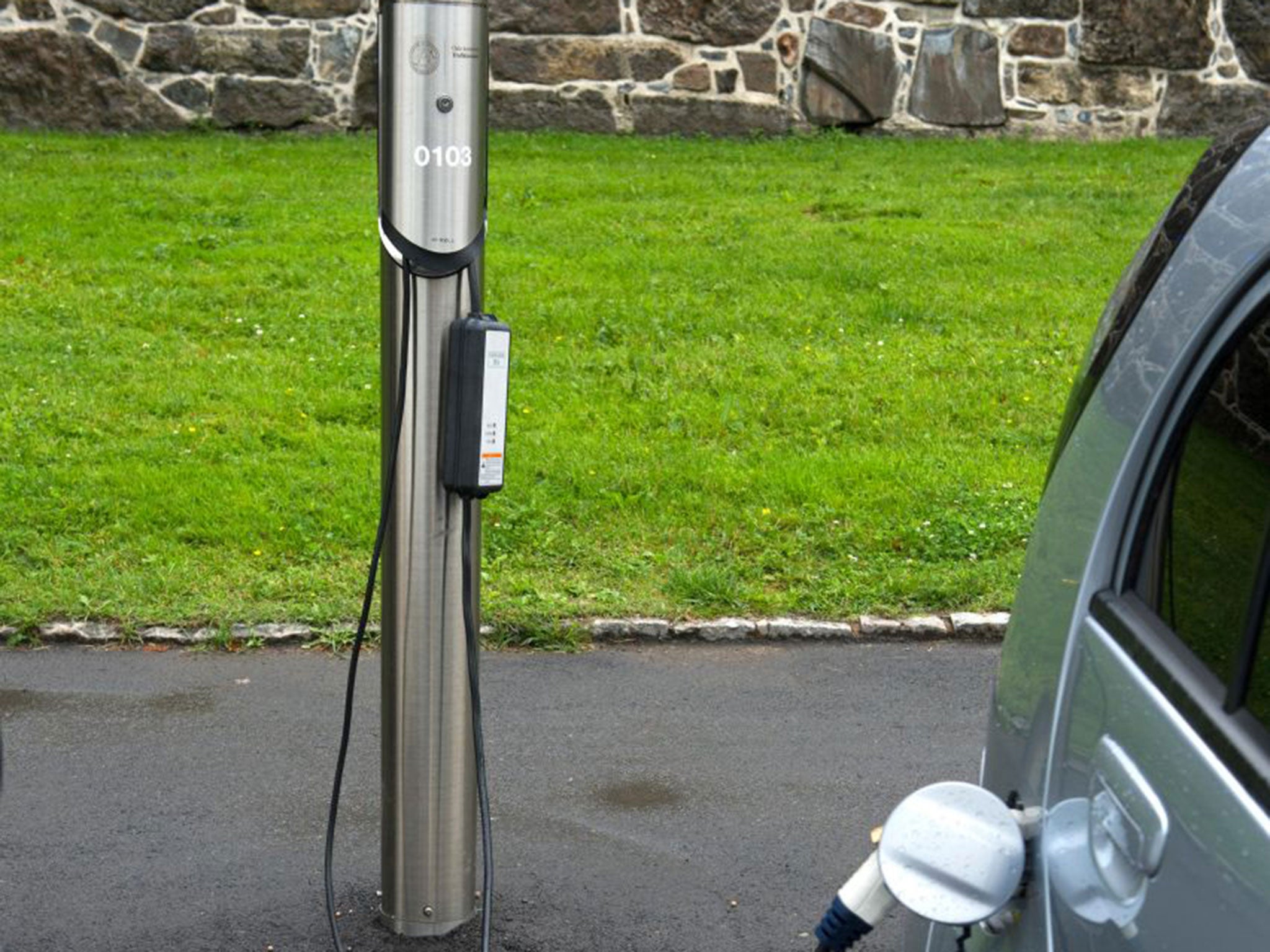Saving money not the environment is driving Norway's electric car boom
With a population of only five million, the country now has 35,000 battery-powered vehicles on its roads

Your support helps us to tell the story
From reproductive rights to climate change to Big Tech, The Independent is on the ground when the story is developing. Whether it's investigating the financials of Elon Musk's pro-Trump PAC or producing our latest documentary, 'The A Word', which shines a light on the American women fighting for reproductive rights, we know how important it is to parse out the facts from the messaging.
At such a critical moment in US history, we need reporters on the ground. Your donation allows us to keep sending journalists to speak to both sides of the story.
The Independent is trusted by Americans across the entire political spectrum. And unlike many other quality news outlets, we choose not to lock Americans out of our reporting and analysis with paywalls. We believe quality journalism should be available to everyone, paid for by those who can afford it.
Your support makes all the difference.Stand on many Oslo street corners and you'll notice something odd. Cars swish past, driving in the bus lanes. And they make no noise. The usually obedient Norwegians have not succumbed to breaking traffic laws; rather, the country is in the grip of an electric car boom.
Norway, with a population of only five million, now has on its roads 35,000 electric vehicles (EVs), which also represent 14.5 per cent of new vehicle sales. Figures show another spike last month with 1,346 sales. And one of the most prized benefits of ownership is the right to drive in bus lanes.
In a central Oslo café, half a dozen electric cars parked up nearby, Marina Maneas Bakkum of Nissan, manufacturer of the electric Leaf, a five-seat family car, explains: "Our customers here aren't early adopters or even necessarily environmental evangelists, though that's important. They are ordinary working people."
The biggest attraction for many are tax breaks, incentives and perks that electric car drivers receive, said Christina Bu of the country's Electric Vehicle Association. "The small, plastic-box electric cars are a thing of the past," she said. "The uptake has nothing to do with the Norwegian psyche or love of the environment, it came when people started to realise there were huge savings to be made."

Those benefits are incredibly generous, including exemption for VAT and car tax as well as access to bus lanes, free parking, free toll-road use, free ferries and employment tax benefits. A recent study suggested this equals as much as £1,000 a year in savings over the life of an EV.
It is a situation which makes the country's Conservative party environment minister Tine Sundtoft very proud. She told The Independent on Sunday that Norway was "blessed with almost 100 per cent renewable electricity production" so electric transport "makes a lot of sense". There are concerns, however, that the government may not renew the generous subsidies when they expire in 2017.
For now, though, the friendly political atmosphere has resulted in a sales boom. In March, Tesla's new Model S sedan set a Norwegian sales record of 1,493, making it the most popular car in the country, with new models such as electric VW Golf expected to add to the boom. Tesla, which was founded by eccentric PayPal billionaire Elon Musk, is unique in that it operates its own supercharger network, which is dotted along Norway's spine and offers 300 miles of range from a 30-minute charge, making long-distance travel possible.
At a Tesla station outside of the town of Gol, local newspaper journalist Kjell Osterbo and his wife were using the superfast charger for the first time on a trip back from Oslo to their hometown of Bergen. Mr Osterbo said that the £60,000 car was an "impulse buy" after a "dinner party conversation". Mr Osterbo, who is economics editor at Bergens Tidende, added: "The tax regime is incredibly friendly to electric cars here in Norway. There's an element of wanting to help the environment and understanding that we all need to come together to act, but the fact you don't pay any tax on it at all is massive."

Yet despite the glamour of the new Model S, it was the Nissan Leaf that really jump-started the boom. Priced from around £16,000, it costs a third of the price of the Model S, and is still the most common in some areas of west Oslo. Last year alone Nissan sold 4,604 electric cars, more than doubling its 2012 sales.
Not everyone is convinced the country has the right approach, though. Bjart Holtsmark, an economist at the Norwegian government statistics bureau, said: "My basic concern is that the Norwegian EV policy means that there are almost no private driving costs," he said. "Therefore, the policy is leading to more car driving at the expense of bicycling and public transport.
"If the goal of the EV policy is to have many EVs on the street, the Norwegian policy is a success. However, it is a basic misunderstanding that increasing the number of EVs is a goal by itself.
"We do not know to what extent the many EVs in Norway have replaced traditional cars. If the EVs to a large extent have come in addition, the result is higher CO2 emissions, not lower."
Unsurprisingly, environmentalists disagree. "For a country of just five million people it's fantastic that we are making an impact on the international car industry," said Frederic Hauge, founder of the country's Bellona Foundation, an environmental direct action group.
"It's an example all European governments should be looking at to tax cars according to their CO2 emissions, so the higher the emissions, the higher the tax."
Join our commenting forum
Join thought-provoking conversations, follow other Independent readers and see their replies
Comments